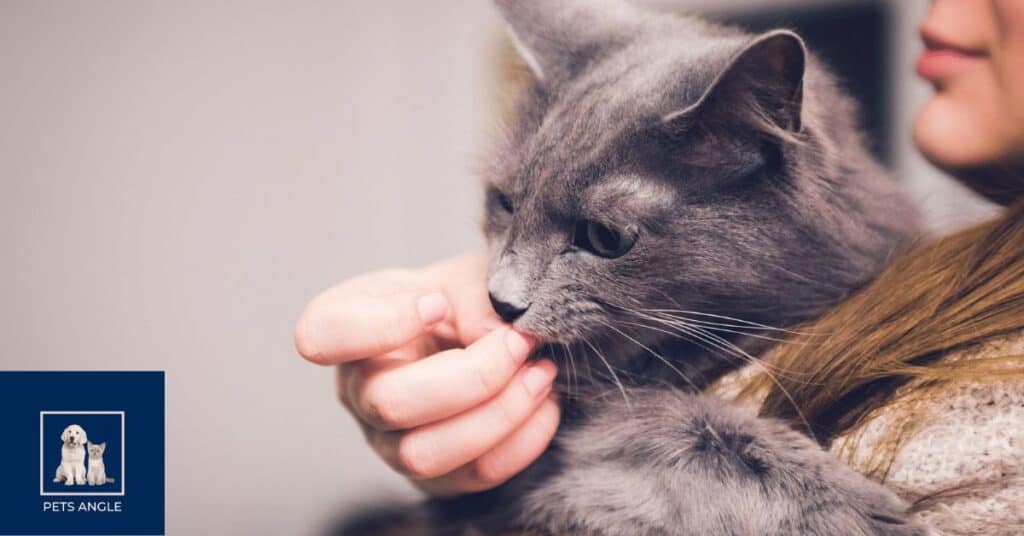Cat spit will not blind you or cause you any harm. Unfortunately, excessive contact with specific pathogens and bacteria in cats can raise your likelihood of developing particular eye problems.
Pets are thought to be beneficial to one’s mental health. While petting an animal can reduce the risk of heart attack and lessen tension, this isn’t always the case for cat owners because of some exposures.
Domestic pets, including cats, carry several harmless bacteria. Still, a small volume can trigger significant sickness, especially in those with weakened immune systems.
What Eye Disease Can You Get from Cat?
Conjunctivitis, also known as pink cat-eye, is the most commonly imagined disease that humans can contract from cats, although this is not the case. Pink eye in cats is caused by feline viruses and bacteria that cannot be passed to people, nor can humans infect felines.
Other eye diseases, such as blepharitis, might be contracted due to too much contact with your cats. Please keep in mind that while the eye condition is not infectious, humans can become sick by irritants carried in cat saliva or on their bodies.
Too much contact with a pet cat’s feces increases the risk of getting glaucoma and cataracts. The trouble is exceptionally high in children because they may not be able to maintain essential cleanliness while playing with cats. The risk is also high in individuals with weakened immune.
Is a Cat’s Spit Poisonous?
Spit or saliva from a healthy cat is completely safe—as long as the cat isn’t sick with a contagious condition. Some antibacterial activities have been discovered in cat saliva (although likely not enough to have a noticeable difference on a human wound; I would stick with an antibiotic salve).
While there are no guarantees that cat saliva is safe, it is recommended to wash your hands whenever you come into touch with it, whether by a lick, spit, bite, or on her body after she has just groomed herself.
You also have nothing to worry about as long as your vaccines are up to date.
However, it is safer not to treat a stray cat in the same way because stray kittens are not vaccinated and hence have a higher risk of infection.
Is There Anything Good about Cat Spit?
The saliva of cats is antiseptic, antibacterial, and therapeutic. Cats, on the other hand, have toxic bacteria in their mouths.
If your cat licks its wound and then ignores it, the saliva will help it recover.
Do Cats Truly Spit?
Cats do not spit in the same way that people do because they lack the lips that allow saliva to be expelled to a specific location.
Even when cats are upset, they merely howl and hiss. Any saliva seen is only due to the open condition of their jaws at the time, and the spit discharged is not directed at anyone or anything other than being expelled into the air.
While felines do not generate deliberate spit, they produce saliva, which contains a protein that causes allergic reactions in some people.
I’ve also seen cats twist their mouths in a spitting motion; upon closer inspection, they were clearing their mouth of hairballs in a spit-like move.
When cats (or kittens) attempt to intimidate another animal, they hiss with spit to demonstrate how vicious and brutal they are. This bluff is charming with kittens.
Why Do Cats Spit?
Spitting is significantly more likely to indicate stress or weakness than offensive hostility in cats. When cats feel threatened by another creature on their territory, they engage in spitting.
Fear, worry, or irritation are all feelings that a spitting cat is experiencing. We can now see that this is not the case, despite the widespread perception that a spitting cat is being nasty.
Cat spit is always characterized by a short intake of breath followed by a swift, violent-sounding exhalation. The high-pitched yowl and a vigorous spitting sound are not made at the same pace as a hiss.
Physical saliva spit is never observed, despite the possible moisture droplets occasionally.
What to Do When Your Cat Spits At you?
Going towards them will make them hiss even louder because spitting is a heightened emotional response, similar to a cat in a fight; therefore, you should back off.
Give them significantly more time than you believe they need to recover from the stressful event or situation the cat has been through. The cat will most likely revert to its typical play behavior once its body system has relaxed from the apparent fear.

